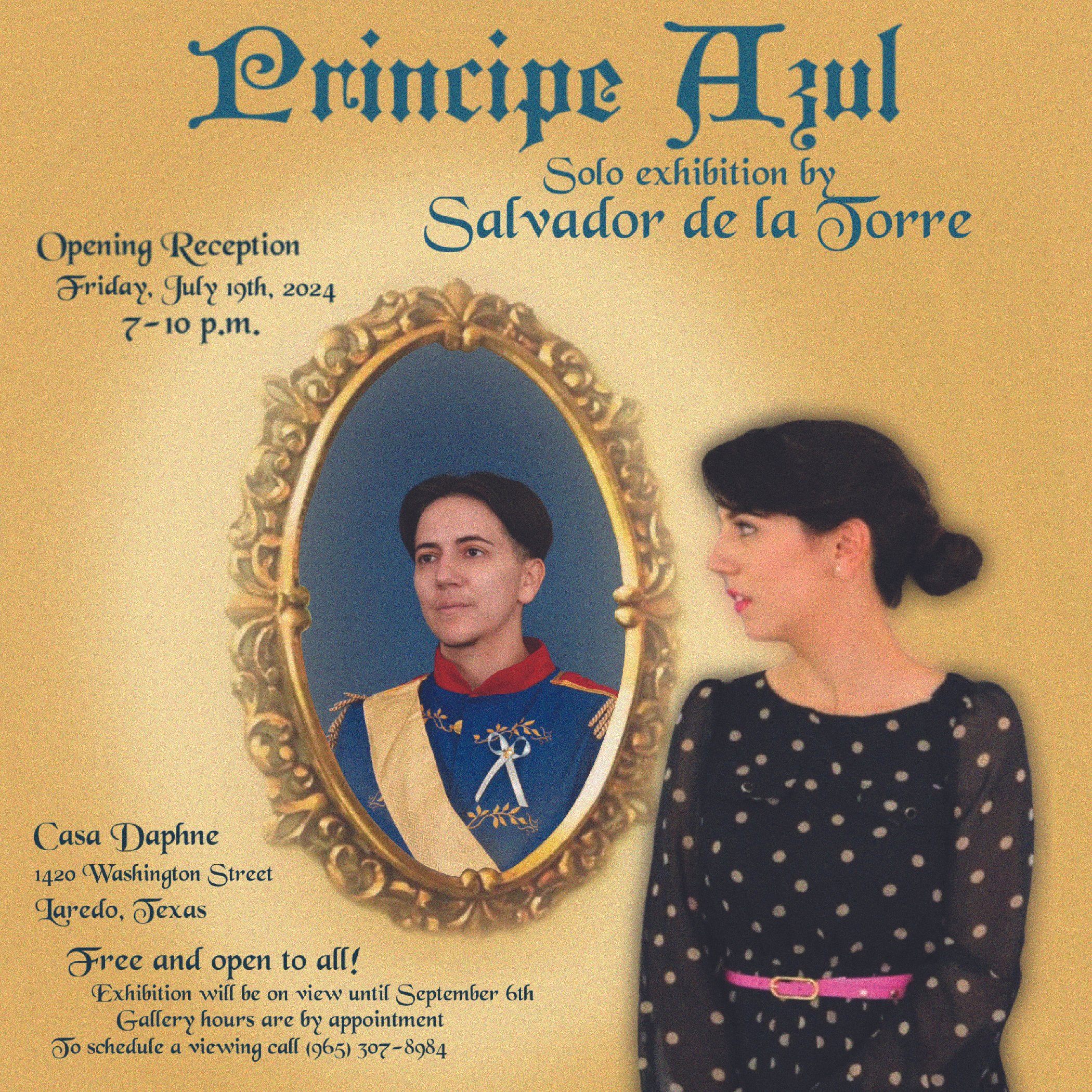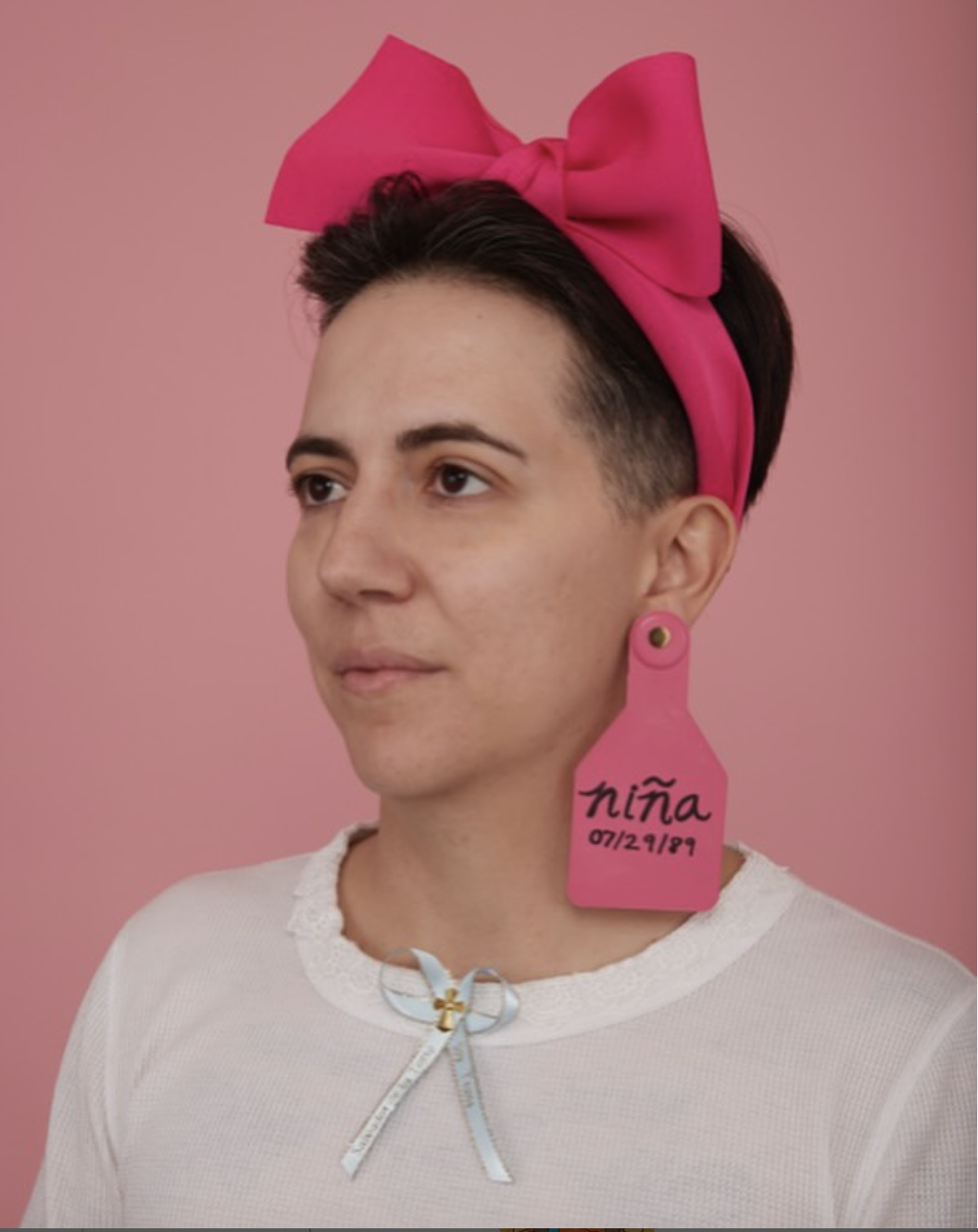Principe Azul
Born in Jalisco and raised in Laredo, Principe Azul is artist Salvador de la Torre’s long-awaited homecoming. After undergoing a social and medical transition as a transmasculine person, de la Torre returns to Laredo as a new man. Imbued with tradition and ritual, Principe Azul subverts heteronormative fairytale and traditional Catholic and Mexican milestones tied to gender and sexuality.
The title Príncipe Azul originates from a saying the elder women in de la Torre’s family repeated to them as a child. They would say, "Una siempre tiene que estar bien arreglada y maquillada, no importa a dónde vayas porque nunca sabes cuándo te vas a encontrar a tu príncipe azul." Growing up in this environment, de la Torre believed he needed to embody hyper-femininity and adhere to beauty practices that would make him attractive to the male gaze; so he could find his savior, his Principe Azul.
Principe Azul’s is set in the context of a Mexican house party, complete with cumbia blasting from a speaker, where in de la Torre’s nostalgic memories of home, he attended dozens of baptisms, baby showers, and first communions. The traditional rituals of Catholicism and Mexican culture are seen through a queer, transmasculine lens in de la Torre’s handcrafted offerings.
De la Torre uses his hands to crush and mold a new identity on the past. In his childhood, baptism cakes were topped with thick white icing and flowers and celebrated the birth of a new life, but in Principe Azul, the cakes represent a celebration of the birth of de la Torre’s transgender identity, of confessional notes to his family that cannot be said in words.
In de la Torre’s interdisciplinary show, he constructs a world of his own, using clay, resin, and found objects, to reimagine the recuerdos, cakes, gelatin desserts, and more from his childhood, to design a world where he, as an adult, finally becomes his own Principe Azul.
Articles
●https://glasstire.com/events/2024/07/24/salvador-de-la-torre-principe-azul/


















